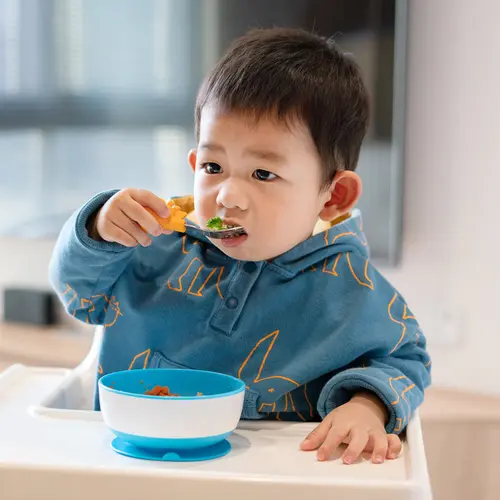Aseelah El-Amin is a self-proclaimed germaphobe. When the Atlanta mom was looking for daycare for her 18-month-old daughter, she visited many child-care centers, always asking the directors lots of questions. She asked how they kept toys clean, what the policy was about sick kids, mask wearing, and how they worked to fight germs.
"I knew that when children start daycare, they get sick a lot," she says, "so I was really picky."
She found a place near her home where germ fighting was a top priority. The staff had children take off their shoes in a small room before coming inside. Toys were cleaned every day with natural cleaning products. Parents were given a list of symptoms -- such as diarrhea and pinkeye -- that meant sick kids had to stay home.
Like El-Amin, you may be concerned about germs, hygiene, and sanitation when choosing a daycare center, particularly in the age of COVID-19. Then your worries may surface again when cold and flu season starts. That's when you may notice kids with runny noses and coughs playing side by side with your child.
These concerns are valid, pediatricians say. With so many small kids together in a small place, daycare can be a festering ground for bacteria and viruses.
Questions to Ask About Germs
Sick kids and daycare may go hand in hand, but there's plenty you can do to make sure your child-care center is doing its best to prevent COVID and keep the cold virus and flu virus -- as well as assorted bacteria -- under control. Start by asking some of these questions.
Are employees required to wear masks?
The CDC recommends universal indoor masking in early childhood programs for children ages 2 and older, regardless of vaccination status.
How often do employees wash hands?
The ideal center should require employees to wash their hands as often as a doctor does -- in between touching every child.
If your child-care center doesn't have a sink in every room, look for bottles of hand sanitizer. If employees have to leave the room to clean their hands, they may be less likely to do it.
How clean are the toys?
Many centers have a policy that toys are cleaned and sanitized at least once a day. Guidelines from the American Academy of Pediatrics, however, suggest that every time a toy is placed in a child's mouth, it should be set aside until it can be cleaned and disinfected.
What's the policy on sick kids?
No parents want their child playing next to a child who has COVID or has been exposed recently to the virus, those with a fever, pinkeye, or the flu. At the same time, if you have a busy day at work, can you afford to stay home because your child has a cough?
Policies on when sick children should stay home differ among daycare centers. According to joint recommendations by the American Academy of Pediatrics, the American Public Health Association, and the National Resource Center for Health and Safety in Child Care and Early Education, a child should temporarily be kept out of daycare for any of the following:
- A fever above 101° F (checked orally) accompanied by behavior change or other symptoms (sore throat, rash, vomiting, diarrhea, etc.)
- Diarrhea that can't be contained in a diaper or that makes a toilet-trained child incontinent
- Vomiting more than two times in a 24-hour period
Some centers may be more or less lenient than others. While some may not even allow a child who is sneezing to attend, others allow many types of sick kids but separate them in a different room.
But if a child is isolated because of not feeling great, that child should also be given attention and not be left alone or ignored.
Know the Policies
Most centers ask parents to sign a form that explains the center's policy for sick kids, and the policy is also posted. But some parents claim they are unaware of the policy when it's their child that is sick.
It's important to find out what the written policy of the center is regarding the issues you care about. Then there's no confusion.
Often daycare workers get frustrated with parents who dose their sick kids with medicine and drop them off at daycare. Center workers say they see the most fevers after nap time, says Richter, because typically that's when the medication wears off.
In the battle against germs, you need to keep in mind that there's a limit to how much germ protection you can provide. There are some things parents just can't control. It's a fact, your child's going to get ill at some point whether or not they are in a daycare center. That's part of the normal process of growing up.


